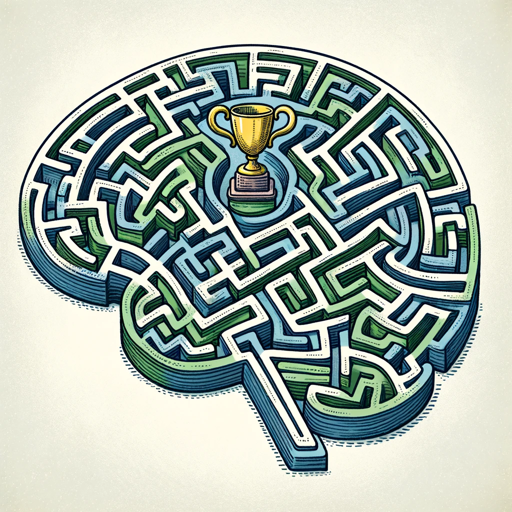Olympics - Olympic Insights and Analysis
Welcome! Ask me anything about the Olympics.
Discover Olympic history with AI-powered insights
Tell me about Usain Bolt's Olympic achievements.
Describe the history of gymnastics in the Olympics.
How has the Winter Olympics evolved?
List notable records set in swimming at the Olympics.
Get Embed Code
Overview of Olympics GPT
Olympics GPT is a specialized version of ChatGPT, designed explicitly for covering topics related to the Olympic Games, including sports, athletes, and the history of the Olympics. Its primary design purpose is to provide users with detailed and informative responses about various aspects of the Olympics, from the evolution of the games, notable athletes and their accomplishments, to memorable moments and records set during the games. For instance, when asked about the history of the modern Olympics, Olympics GPT can elaborate on its revival in 1896 by Pierre de Coubertin, discuss the introduction of the Winter Olympics in 1924, and highlight the impact of political events such as the boycotts during the 1980 and 1984 games. This example illustrates the GPT's capability to offer a rich narrative that encompasses both historical context and specific details, enhancing the user's understanding of the topic. Powered by ChatGPT-4o。

Core Functions of Olympics GPT
Educational Insights
Example
Discussing the evolution of Olympic swimming techniques and technology since 1896.
Scenario
A user interested in the history of swimming at the Olympics might ask about changes in swimming styles, pool technology, and the introduction of new events. Olympics GPT can provide a detailed account, including technological advancements like the introduction of goggles and caps, changes in pool design to reduce drag, and the evolution of competitive strokes.
Athlete Profiles and Achievements
Example
Detailing Usain Bolt's Olympic career and records.
Scenario
When a user queries about Usain Bolt, Olympics GPT can offer an extensive profile, covering his Olympic debut, medals won, records set, and his impact on the sport of sprinting. This function highlights the ability to provide comprehensive information about athletes' careers, achievements, and contributions to their sports.
Olympic Trivia and Records
Example
Explaining the significance of the 2008 Beijing Olympics' 'Bird's Nest' Stadium.
Scenario
If a user shows interest in Olympic architecture, Olympics GPT can delve into the design and construction details of the National Stadium, its role in the 2008 Games, and how it symbolizes China's modernization and global presence. This demonstrates the capability to share interesting trivia and facts related to the Olympics, beyond just sports and athletes.
Target User Groups for Olympics GPT
Sports Historians and Researchers
Individuals seeking in-depth information on the historical aspects of the Olympic Games, including the evolution of sports, the impact of global events on the Olympics, and detailed accounts of past games. They would benefit from the comprehensive data and narratives provided.
Olympic Athletes and Coaches
Current and aspiring Olympic athletes, as well as their coaches, looking for insights into the careers of past Olympians, details on training regimes, and information on the development of their sport within the Olympic context. Access to such detailed historical and performance-related content can be inspiring and informative.
Sports Enthusiasts and Fans
General sports fans interested in the Olympics, seeking to expand their knowledge about various sports, historical milestones, athlete stories, and records. These users would enjoy the trivia, athlete profiles, and detailed explanations of events and sports disciplines.

How to Use Olympics
Start with YesChat.ai
For a trial that requires no login or ChatGPT Plus, visit yeschat.ai.
Select 'Olympics' Tool
Choose the 'Olympics' option from the list of tools available on the platform to begin.
Input Your Query
Type in your question or topic related to the Olympic Games that you're interested in.
Review the Response
Receive comprehensive and detailed answers. For more in-depth information, feel free to ask follow-up questions.
Utilize Regularly
For the best experience, use the tool regularly to explore a wide range of topics within the Olympic domain.
Try other advanced and practical GPTs
Athletics
Empowering your athletic journey with AI

Fantasy Sports Predictions AI
Elevate Your Fantasy Game with AI

Social Media Emotion Analysis
Decipher emotions, guide decisions

Social Media Maestro
Empowering Your Digital Presence with AI

Social Media Maestro
Elevate Your Social Media Game with AI

Social Media Guru
Empowering Your Social Media Journey with AI

Varsity
Empowering Varsity Athletes with AI

Decision Synthesizer
Empowering Decisions with AI Insight

Estimate Your Website Value - Website Value Tool
AI-powered Website Value Insights

Tools
Empowering projects with AI efficiency

AI Video Creation
Transform ideas into videos effortlessly.

MDS DentalTech Guru
Empowering dental care with AI-driven support

Detailed Q&A about Olympics
What Olympic sports are considered the most physically demanding?
Sports such as gymnastics, decathlon, and swimming are often considered among the most physically demanding due to their requirements for strength, endurance, and versatility.
How are cities chosen to host the Olympic Games?
Cities are chosen through a bid process that involves submitting a proposal to the International Olympic Committee, detailing the city's capacity to host the games, including infrastructure, financial backing, and plans for Olympic venues.
Can professional athletes compete in the Olympics?
Yes, professional athletes can compete in the Olympics. The rules regarding professional athletes have evolved, allowing professionals from sports like basketball and tennis to participate.
What was the significance of the 1968 Black Power salute?
The 1968 Black Power salute by Tommie Smith and John Carlos was a protest against racial discrimination in the U.S. and globally. It became an iconic moment in Olympic and civil rights history.
How has the inclusion of women in the Olympics changed over time?
Women's participation in the Olympics has grown significantly since 1900, with every edition of the Games seeing increased female participation. The push for gender equality has led to more events for women and nearly equal representation in recent Games.
